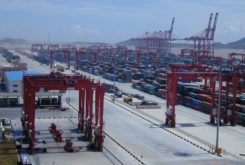Taxation changes in China will significantly raise human resource costs for companies and hamper investment, the European Chamber of Commerce in China (ECCC) has warned.
As part of China’s individual income tax reform announced in 2018, the transition period for the phase-out of relevant non-taxable allowances—like housing allowance, children’s tuition allowance, relocation allowance, language lessons allowance, among others—granted to foreign employees will end on 1st January 2022.
According to the ECCC, from the start of 2022, “such benefits will become fully taxable”.
“The cancellation of non-taxable allowances for companies that employ foreign employees is expected to significantly raise human resource costs for companies, deter expatriate assignments and negatively impact foreign investment”, the Chamber warns.
The European Chamber’s working groups have been advocating on this matter since 2018.
Recently, the working groups summarised the assessment of and recommendations on this issue, as well as the Chamber’s advocacy actions to address our concerns with the Chinese government and survey results on its potential impact.
New demands by China for foreign workers re-entering the country, since November 2020, are a ‘de facto ban’, according to the ECCC.




